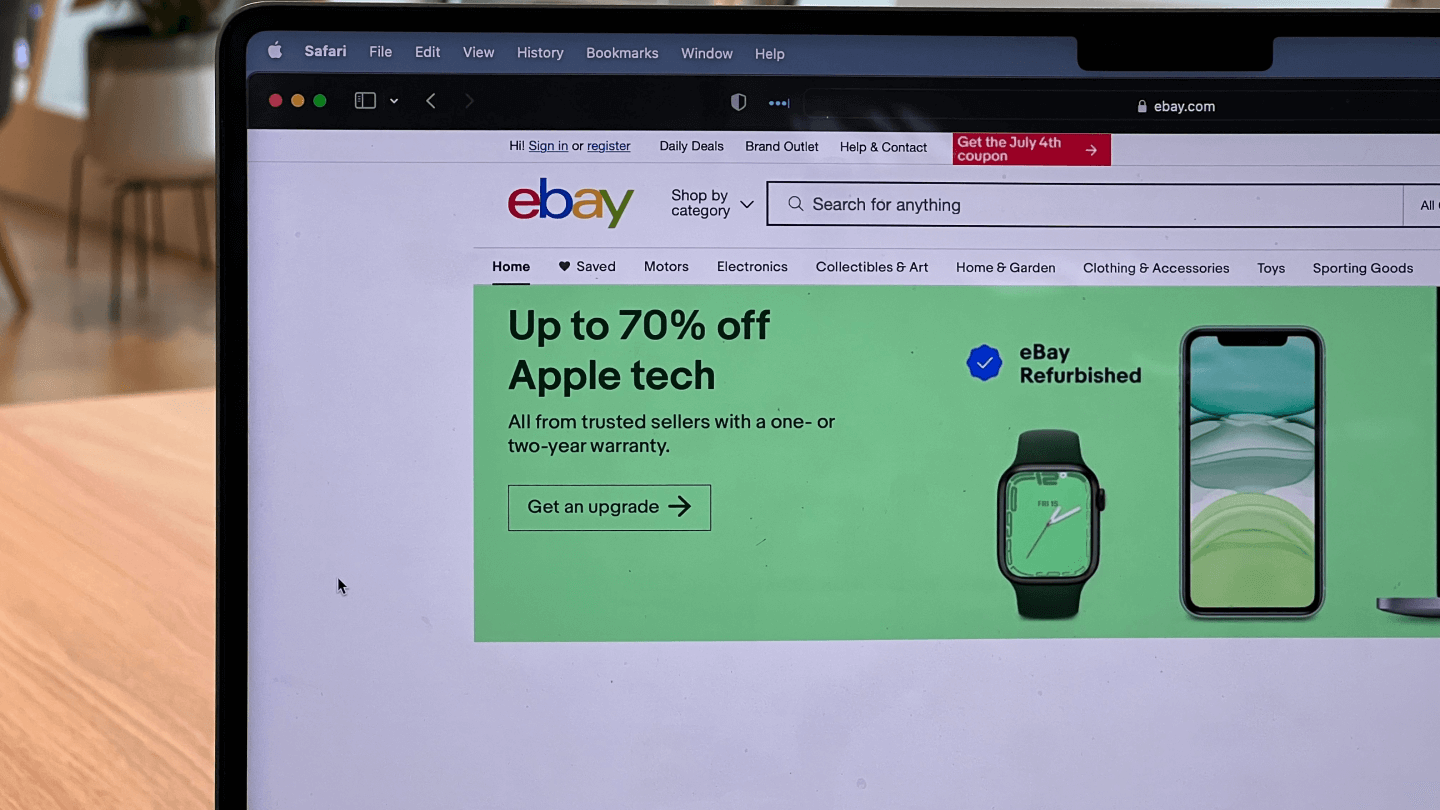If you’re selling branded items on eBay, you need to be aware of the Verified Rights Owner Program (VeRO).
This program provides a way for companies to protect their intellectual property rights by reporting seller violations.
But what do you need to know about the program? How does it work? And what are the potential consequences for your eBay business?
Let’s take a closer look.
TL;DR
- eBay’s VeRO Program is designed to make it easier for companies to report rights violations.
- If you use copyrighted material or violate intellectual property rights, your listings can be affected.
- In serious cases, you could find your account being suspended.
- Always know the guidelines and create listings that do not violate intellectual property rights to grow your eBay business in confidence.
eBay VeRO Program Overview
The eBay Verified Rights Owner (VeRo) Program was created by eBay back in 1998, so it’s been around for a long time.
The basic aim of the program is to provide companies with an easy way to report listings that they think are infringing their trademarks or copyrighted materials.
There are currently over 40,000 members, consisting of companies that own intellectual property rights.
A Safer Marketplace

eBay wants its marketplace to be a safe and secure place to buy and sell items, and this means that all sellers must respect the rights of property owners.
Millions of people use eBay to buy products, and they want to know that they’re buying genuine products that are being sold legally.
eBay also wants companies to be able to protect their intellectual property.
An intellectual property rights owner will want to know that sellers are not acting illegally by selling its products without the correct permissions. The VeRO program gives these rights owners an easy way to report abuses.
This could include the use of its copyrighted material or trademarks without permission, or the selling of counterfeit products. Trademarked material and copyrighted material could include logos, brand names, photos, website content, and more.
An Easy Way to Report Violations
It’s difficult for eBay to check and verify all the information in all the listings, and it would be a huge amount of work. So it created the VeRO program to make it easier for rights owners to report violations.
Intellectual property rights owners can join up with the program easily, and then they can report any potential violations directly to eBay.
A company that has signed up to the program will typically check eBay listings regularly. If they find one that violates their copyrighted materials, they can report it to eBay through the program.
eBay can then take action, and we’ll look at exactly what that action can mean for you later.
One thing this program isn’t aimed at is detecting stolen items. eBay claims that if you see something being sold that you think is stolen, you must contact the relevant law enforcement body. Once the law enforcement body contacts eBay, it can then take action.
How the VeRO Program Works
It starts when a company signs up to the VeRO program. If they have intellectual property rights that they want to protect, they can simply apply to join the program.
They then scan eBay’s listings. If they find a listing that they think violates their rights, they instruct eBay by filing a Notice of Claimed Infringement (NOCI).
They do this via the eBay website. When they submit a request, it should contain a description of the problem, how the seller is infringing on their rights, and all the information that eBay needs.
eBay then looks into the alleged intellectual property infringement. If it finds that the complaint is valid, it can take action.
There’s a list of members in the VeRO program, and this list is updated regularly. Companies each have a page, and they include information that sellers do not have authorization to include.
Many of the pages contain the same information, including rules surrounding restrictions on the use of copyrighted materials. However, some larger companies have stricter rules around selling their products.
How Companies Detect Problems in Listings
So with so many listings posted on eBay, how do companies find out that sellers are violating their intellectual rights?
They typically do this by using automated tools. Third-party software exists that scans eBay listings automatically and finds eBay listings that contain potential infringements.
The company can then look into the listing in more detail and take action if they find that it does indeed contain violations.
What Happens if You Violate the Policies?
If you violate the policies by including information that you should not (for example, by using a logo that you do not have permission to use), eBay can take action.
The first thing that eBay will usually do is to remove the offending listing. It will then send you an email containing information on why this action has been taken, and the action you can take.
If you think the reason for your listing being removed is incorrect, your first step should be to contact the rights owner. eBay will provide you with information about how to do this in the email it sends.
However, you could also see restrictions placed on your account if you’re a repeat offender. In the most serious cases, your account could even be suspended.
This could mean the end of your eBay business. You spend a lot of time building your business, from optimizing listings to using automated repricing software to increase sales and profits. Don’t risk ruining this by not following the rules.
What if the Rights Owner Is Wrong?
Companies are also bound by certain rules about making claims via the VeRO program.
eBay states that there are some situations when they should not make a claim against a seller. For example, they cannot file a claim to simply control who sells their products.
They also cannot use the system to try and control the price of any items.
Sometimes, companies may misuse the program. In this case, if they’re found to be in the wrong, you may have any restrictions on your account removed. You might even get a refund for listing fees that you have lost.
In this situation, however, you should always start by contacting the company first. If you contact the company and don’t receive a response, then you should make a request to eBay instead.
When the rights owner is correct, the most common problem is that you have used information you should not. In this case, you can usually have the option of editing the listing, like changing the text and images, and uploading it again after ensuring it meets all the requirements.
Common Reasons for Infringement

There are many potential ways you can infringe property rights, and companies are on the lookout for these infringements. They use software to scan eBay listings, so don’t assume that your listings won’t get noticed.
It’s a much better idea to be aware of the reasons and avoid them when you create your own listings.
- Trademark infringement is one of the most serious. Companies protect their trademarks, whether these are names, phrases, symbols, etc. You should only use these with prior authorization.
- Copyright infringement is another potential problem area. These are protections that prevent copying materials and distributing them, and they could apply to images, descriptions, and more.
- Counterfeit products clearly cannot be sold anywhere because it’s illegal. Doing so could even lead to legal action being taken.
- Some companies may prevent you from using the brand name in the listing, and this may only be permitted for authorized distributors. Be careful when selling items that are compatible with branded products.
- Warranty information. Avoid misrepresenting this in your listing. For example, reselling the product may break the warranty agreement. Contact the manufacturer if you’re unsure.
Create Legally Compliant Listings
Due to the risks of creating listings that violate copyright, it’s important to make sure your listings are compliant.
Fortunately, creating eBay listings is relatively easy to do.
- Always check the profile of the company in VeRO and find out what you can and cannot say. Follow the rules laid out by the participant to avoid problems.
- Don’t copy any information from the company’s own website. Take your own photographs and don’t take them from the internet or other listings without permission.
- Ensure accuracy in any claims or statements you make. Including inaccurate information could upset the rights owner.
- Do not claim to be an authorized dealer.
If you really don’t want to take any risks, then change what you’re selling and avoid selling products from companies in the VeRO program.
Conclusion
Infringing property rights is a serious business, and it’s something you don’t want to risk doing. While the punishment can be simply the removal of your listing, it could lead to your eBay account being suspended.
In rare cases, it could even lead to legal action being taken.
If you sell branded products, always be very clear about what you can and cannot say and do in your listings.
The VeRO program is a way for brands to protect their intellectual property, and eBay takes this seriously. It wants its marketplace to be a place where people can shop with confidence.
So don’t risk violating intellectual property rights. Always check the company’s profile in the VeRO program, and be careful about the information you include in your listing.
Then you can grow your business safely and with confidence without worrying about your listings being removed or potentially suffering more serious consequences.
Interested in beating your eBay competition and securing more sales? Try Repricer.com completely free for 14 days and discover the power of competitive repricing.






